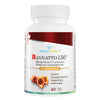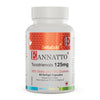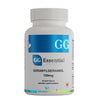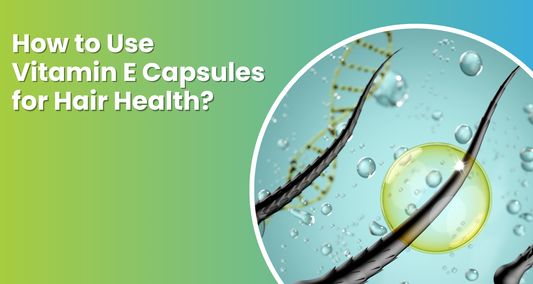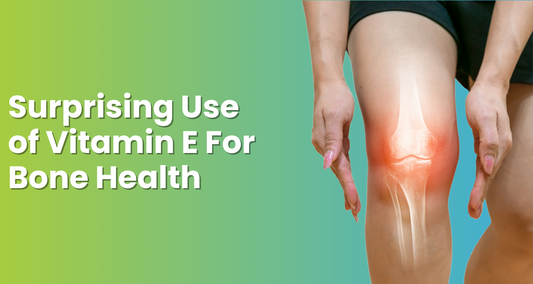Did you know that over 700,000 gallbladder removal surgeries are performed each year in the United States alone? That's a staggering number, highlighting the prevalence of gallbladder issues and the need for surgical intervention.
But can you live without a gallbladder? In this blog, we’ll explore whether can you live without a gallbladder, how your body adapts, and the lifestyle adjustments needed when living without a gallbladder for a healthy life. Understand the effects of gallbladder removal surgery and how it impacts the body.
Let's explore can you live without a gallbladder?
Key Takeaways:
- Over 700,000 gallbladder removal surgeries are performed in the United States every year.
- Gallbladder removal surgery is a common procedure to address gallbladder problems.
- Can you live without a gallbladder? Living without a gallbladder requires lifestyle adjustments and dietary modifications.
- Recovery from gallbladder removal surgery can vary, but most individuals can resume normal activities within a few weeks.
- Consulting a healthcare professional is crucial for personalized guidance on managing digestive health after gallbladder removal.
Understanding Gallbladder Function and Problems
The gallbladder is an important organ in the digestive system that plays a crucial role in the body's ability to process and store bile. Bile is a substance produced by the liver that aids in the digestion and absorption of fat. The gallbladder acts as a storage tank for bile, releasing it into the small intestine as needed to break down fats.
However, problems can arise with the gallbladder, leading to conditions such as gallstones. Gallstones are hardened deposits that form in the gallbladder and can cause a range of symptoms and complications. The most common symptom of gallstones is abdominal pain, typically felt in the upper right side of the abdomen. Other symptoms may include nausea, vomiting, and indigestion.
If left untreated, gallstones can lead to more serious complications, such as inflammation of the gallbladder (cholecystitis) or blockage of the bile ducts (choledocholithiasis). These conditions can cause severe pain, infection, and even damage to the liver and pancreas if left unaddressed.
Common Symptoms of Gallbladder Problems:
- Abdominal pain, particularly in the upper right side
- Nausea and vomiting
- Indigestion and bloating
- Jaundice (yellowing of the skin and eyes)
- Fever and chills
- Back pain
If you experience any of these symptoms or suspect gallbladder problems, it is important to seek medical attention for a proper diagnosis and appropriate treatment. Ignoring these symptoms may lead to complications and further discomfort.
Gallbladder Removal Surgery: What to Expect
When undergoing gallbladder removal surgery, also known as cholecystectomy, it is important to understand the potential complications that may arise and what to expect during the recovery period.
Gallbladder removal complications can vary from person to person, but common risks include infection, bleeding, bile leakage, and injury to nearby structures such as the bile ducts or intestines. It is crucial to have a thorough discussion with your healthcare provider about these risks before undergoing surgery.
During the gallbladder surgery recovery period, you will typically spend a few hours in the recovery room before being discharged. It is common to experience some pain and discomfort at the incision sites, but this can be managed with pain medication prescribed by your doctor.
Bowel movements may be affected temporarily, with some individuals experiencing diarrhea or loose stools. However, this usually improves within a few weeks as the body adjusts to the absence of the gallbladder.
Limited physical activity and avoiding heavy lifting are usually recommended for the first few weeks post-surgery to allow the body to heal properly. Your healthcare provider will provide specific instructions on when you can resume normal activities.
Additionally, your diet may need to be adjusted temporarily after gallbladder removal. Your doctor or a registered dietitian may recommend a gradual reintroduction of foods, starting with a low-fat diet and gradually adding in more dietary fats over time.
- Focus on consuming a variety of fruits, vegetables, whole grains, and lean proteins.
- Avoid or limit high-fat and greasy foods, as these can be harder to digest.
- Stay hydrated by drinking an adequate amount of water throughout the day.
As with any surgery, it is essential to closely follow your healthcare provider's instructions and attend scheduled follow-up appointments to ensure a smooth recovery and minimize the risk of complications.
Adapting to Life Without a Gallbladder
After undergoing gallbladder removal surgery, the body undergoes significant adjustments to adapt to the absence of this organ. Living without a gallbladder may require certain lifestyle changes and dietary modifications to promote optimal digestive health.
One of the key adjustments individuals need to make is to their diet. Without a gallbladder, the body's ability to store and release bile, which aids in the digestion of fats, is compromised. As a result, it is important to make conscious choices when it comes to food intake.
Dietary Recommendations:
- Consume a low-fat diet: Limiting the intake of high-fat foods can help prevent digestive issues such as diarrhea, bloating, and gas. Focus on incorporating lean sources of protein, fruits, vegetables, whole grains, and legumes into your meals.
- Gradually reintroduce fats: While a low-fat diet is recommended initially, it is essential to gradually reintroduce healthy fats into your diet. These can include foods like avocados, nuts, seeds, and fatty fish, which provide essential fatty acids.
- Avoid trigger foods: Certain foods may trigger digestive symptoms in individuals without a gallbladder. These can include high-fat and greasy foods, spicy foods, caffeine, carbonated beverages, and alcohol. It is important to identify and avoid these trigger foods to minimize discomfort.
- Eat smaller, frequent meals: Instead of three large meals, consuming smaller, more frequent meals throughout the day can help the body digest food more effectively. This approach reduces the workload on the digestive system, allowing it to process food more efficiently.
- Stay hydrated: Drinking an adequate amount of water is crucial for maintaining overall health and supporting digestion. Aim to consume at least eight glasses of water per day to stay hydrated and promote optimal digestive function.
While dietary adjustments play a vital role in adapting to life without a gallbladder, it is important to consult with a healthcare professional or a registered dietitian for personalized guidance. They can provide tailored recommendations based on your specific needs and help ensure that you are maintaining a balanced and nutritious diet.
Long-Term Gallbladder Removal Effects and Complications
Living without a gallbladder can have both long-term effects and potential complications. While many individuals experience no significant changes in their overall health, some may encounter certain issues related to the absence of this organ.
One of the primary effects of gallbladder removal is changes in digestion. The gallbladder plays a crucial role in the digestion of fats by storing and releasing bile, which aids in the breakdown of dietary fats. Without a gallbladder, the flow of bile into the digestive system may become irregular, leading to difficulties in processing fatty foods.
Individuals who have undergone gallbladder removal may experience the following long-term effects:
- Diarrhea or loose stools: One of the most common side effects after gallbladder removal is an increase in bowel movements and the consistency of stools. This occurs due to the excess flow of bile into the intestines, which can cause irritation and result in diarrhea.
- Indigestion and bloating: Without a gallbladder to regulate the release of bile, some individuals may experience difficulty digesting fatty foods, leading to indigestion and feelings of bloating.
- Increased risk of certain digestive disorders: Although gallbladder removal does not directly cause conditions such as irritable bowel syndrome (IBS) or bile reflux, studies have shown a potential link between their development and gallbladder surgery.
Moreover, individuals who have had their gallbladder removed may face various complications:
- Biliary dyskinesia: This condition occurs when the bile ducts do not function properly after gallbladder removal, causing the bile to flow inefficiently. Biliary dyskinesia can result in recurrent abdominal pain and digestive discomfort.
- Postcholecystectomy syndrome: Some individuals may continue to experience symptoms similar to those associated with gallbladder issues, such as upper abdominal pain and digestive disturbances, even after gallbladder removal. This condition is known as postcholecystectomy syndrome.
- Formation of bile duct stones: Although rare, the removal of the gallbladder may lead to the development of bile duct stones. These stones can cause significant pain and require additional intervention, such as endoscopic removal.
Despite these potential effects and complications, it is important to note that many individuals lead perfectly normal lives without a gallbladder, making necessary adjustments to their diet and lifestyle. A balanced approach to nutrition, including avoiding high-fat meals and promoting regular exercise, can help maintain a healthy digestive system.
Managing Digestive Health After Gallbladder Removal
Living without a gallbladder can require some adjustments and considerations when it comes to maintaining digestive health. This section will provide practical tips and strategies to help you manage your digestive system after gallbladder removal surgery. By following these guidelines and making conscious choices about your diet and lifestyle, you can promote a smooth digestion process and minimize any discomfort.
1. Eat a Balanced Diet
One of the key aspects of managing your digestive health is maintaining a balanced diet after gallbladder removal. Focus on consuming a variety of nutrient-rich foods, including fruits, vegetables, whole grains, lean proteins, and healthy fats. Incorporating fiber-rich foods can also help regulate digestion and prevent constipation.
2. Monitor Fat Intake
Since the gallbladder plays a role in digesting fats, it is important to be mindful of your fat intake after its removal. Instead of consuming large amounts of high-fat foods in one sitting, spread your fat intake throughout the day by opting for smaller, more frequent meals. Choose healthier fat sources like avocados, nuts, and olive oil.
3. Stay Hydrated
Proper hydration is essential for maintaining good digestive health. Drink an adequate amount of water throughout the day to help flush out toxins, promote regular bowel movements, and prevent dehydration.
4. Take Digestive Enzyme Supplements
After gallbladder removal, your body may require additional support to digest certain foods properly. Consider taking digestive enzyme supplements with meals, as they can help break down fats, proteins, and carbohydrates, making digestion more efficient.
5. Slowly Introduce Foods
When reintroducing foods into your diet post-surgery, it is advisable to start with smaller portions and gradually increase them over time. This allows your body to adjust and helps identify any foods that may trigger digestive issues.
6. Be Mindful of Trigger Foods
Some individuals may find that certain foods tend to trigger digestive discomfort after gallbladder removal. Common culprits include fried foods, spicy foods, caffeine, and alcohol. Pay attention to your body's response and limit or avoid these trigger foods accordingly.
7. Opt for Regular Physical Activity
Engaging in regular physical activity can promote healthy digestion by stimulating bowel movements and reducing the risk of constipation. Aim for at least 30 minutes of moderate exercise most days of the week.
By implementing these tips and adopting a mindful approach to your diet and lifestyle, you can effectively manage your digestive health after gallbladder removal. Remember, it is always essential to consult with your healthcare provider for personalized advice and guidance.
Conclusion
Can you live without a gallbladder? Living without a gallbladder is indeed possible, and many individuals lead healthy and fulfilling lives after gallbladder removal surgery.
While the gallbladder plays a role in the digestion of fats, the body is capable of adapting to its absence. However, it is essential to make certain lifestyle adjustments to ensure optimal digestive health.
After gallbladder removal, individuals should pay attention to their diet and make informed choices. While no specific diet is required, it is advisable to avoid high-fat meals and opt for a balanced approach that includes lean proteins, fruits, vegetables, and whole grains. Incorporating regular exercise and staying hydrated is also crucial for maintaining overall well-being.
It's important to note that some individuals may experience long-term effects and complications after gallbladder removal. These can include digestive issues such as diarrhea or difficulty digesting certain foods. Seeking medical advice and working with healthcare professionals can help manage such concerns and develop personalized strategies for a healthy life without a gallbladder.
In conclusion, can you live without a gallbladder? While the gallbladder plays a role in the digestive system, it is possible to live without it. By making necessary adjustments to diet and lifestyle, individuals can lead fulfilling lives after gallbladder removal.
Remember to consult with healthcare professionals for personalized guidance and support along the way.
FAQs
Can you live without a gallbladder?
Yes, it is possible to live without a gallbladder. The gallbladder is not a vital organ, and its main function is to store bile produced by the liver. However, after gallbladder removal surgery, lifestyle adjustments may be necessary to aid in digestion.
What are the effects of gallbladder removal?
After gallbladder removal surgery, some individuals may experience diarrhea, bloating, or changes in bowel movements. This is because the stored bile is no longer available for efficient digestion. The body can adapt to the absence of a gallbladder, but it may take time to adjust.
How long is the recovery process after gallbladder surgery?
The recovery period after gallbladder surgery varies for each individual, but most people can resume their normal activities within a few weeks. However, it is essential to follow post-surgery instructions provided by the healthcare provider to ensure a smooth recovery.
What is the function of the gallbladder?
The gallbladder plays a role in the digestion of fats. It stores bile produced by the liver and releases it into the small intestine to aid in the breakdown and absorption of dietary fats. The gallbladder also helps in eliminating waste products from the body.
What are the symptoms of gallbladder problems?
Common symptoms of gallbladder problems include abdominal pain, especially in the upper right side, nausea, vomiting, bloating, and indigestion. If you experience these symptoms, it is essential to consult a healthcare professional for a proper diagnosis.
What complications can arise from gallbladder removal surgery?
Though rare, complications from gallbladder removal surgery may include infection, bleeding, injury to the bile ducts, or the presence of retained gallstones. It is important to discuss any concerns or potential risks with the surgeon before undergoing the procedure.
How does one adapt to life without a gallbladder?
Adapting to life without a gallbladder involves making dietary adjustments. It is recommended to consume smaller, more frequent meals, limit high-fat foods, and increase fiber intake. Working closely with a healthcare provider or a registered dietitian can help create a personalized plan.
Are there any long-term effects of living without a gallbladder?
In most cases, living without a gallbladder does not have significant long-term effects on overall health. However, some individuals may experience changes in bowel habits and dietary sensitivities. It is crucial to maintain a healthy lifestyle and follow a balanced diet to promote digestive health.
How can one manage digestive health after gallbladder removal?
To manage digestive health after gallbladder removal, it is important to follow a healthy and balanced diet. This may include consuming lean proteins, plenty of fruits and vegetables, whole grains, and staying hydrated. Regular exercise, stress management, and avoiding trigger foods can also support digestive well-being.
